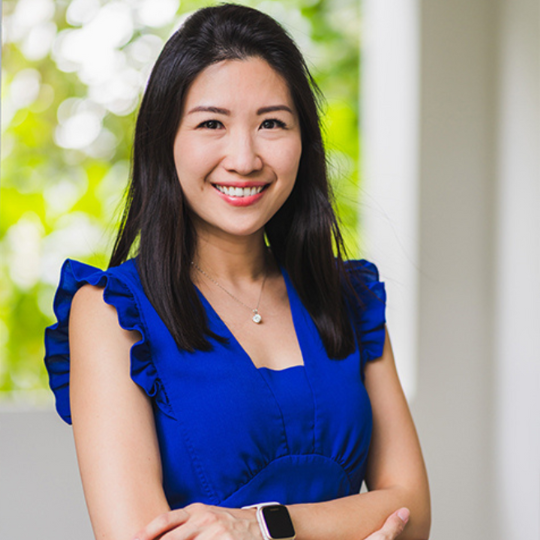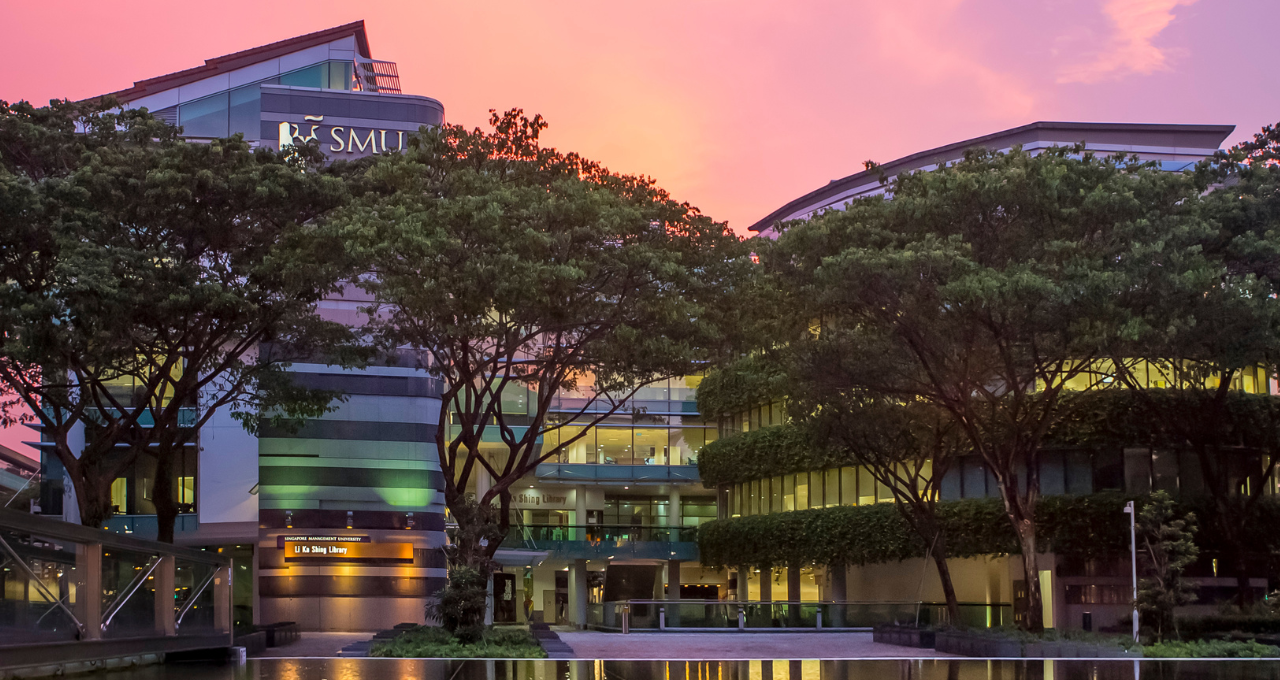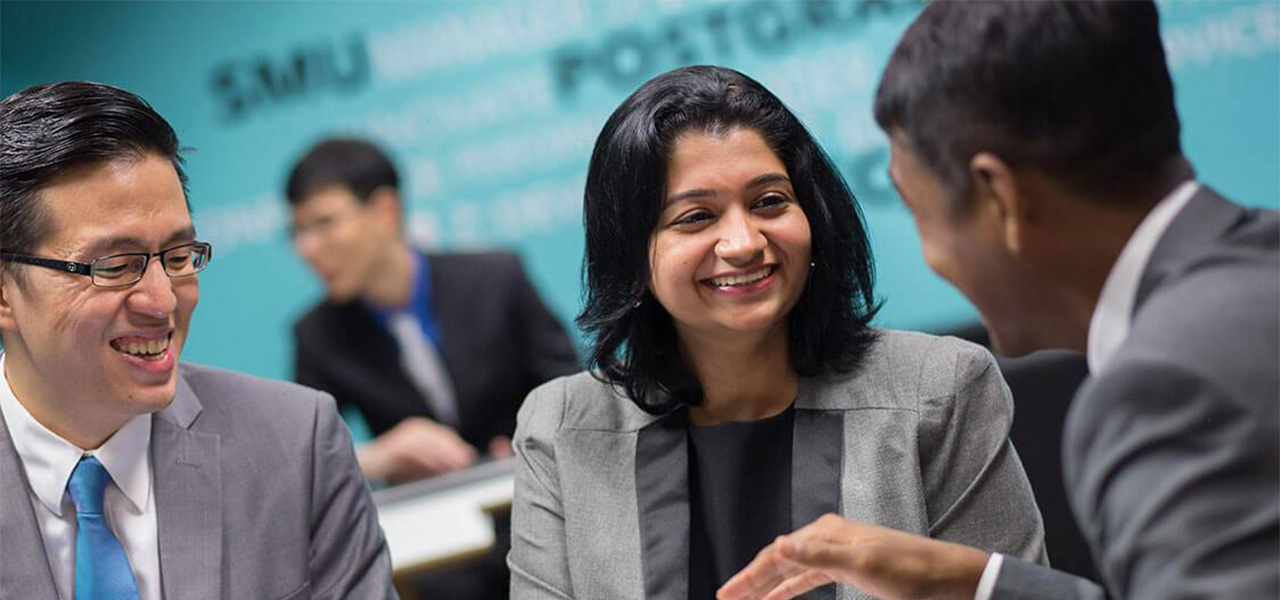By eFinancialCareers
Like many, Jasmine Loke enrolled for an executive MBA (EMBA) at Singapore Management University (SMU) with the aim of career advancement. But what she didn’t expect was the hunger for challenge it would stir up.
“There’s a sense of emptiness that comes to you after you graduate,” she says. “You keep seeking out opportunities to stretch yourself like the programme did. Many in our cohort moved on to new roles.”
Loke, too, applied for and landed a post as International Oncology Associate Brand Director at pharmaceutical giant AstraZeneca, managing its Asian, Australian, Middle Eastern, and African markets. It’s a significant expansion from her previous position as head of the business unit (respiratory and immunology), based in Singapore.
This career progression was accelerated, she says, thanks to her new credentials. Though Loke, 37, had received leadership training from the organisation prior to her EMBA, a desire for continuous growth and improvement led her to realise she wanted to dive deep into becoming a holistic leader.
“I had a little bit of imposter syndrome,” she admits. “I worry if I have enough experience to be an influential part of the team. How do I build credibility and trust? How do I be a leader who can inspire others? How do I obtain buy-in from my peers? I spoke to many other leaders, and they all recommended doing an EMBA when time was right.”
So in 2021, when international travel ground to a halt, she enrolled in the SMU EMBA at the Lee Kong Chian School of Business. SMU’s EMBA programme has been ranked 22nd globally and 7th worldwide for alumni salary (Financial Times EMBA Ranking 2020).
Conversations with alumni gave Loke full confidence that the world-class business school’s subject matter expertise, structure, and curriculum would deliver results. SMU’s EMBA curriculum is co-designed by 100 senior executives and business leaders in Asia, and the accelerated 12-month programme boasts a modular design of eight segments, structured to fit the busy schedule of senior executives.
Loke would take a week of leave to attend classes, then return to the office and immediately put the new knowledge to use. “Very often, the coursework links back to our day-to-day work,” she says. “The intensity of study allowed me to pull out learnings really quickly and apply them.”

Managing Change
Chief among Loke’s learnings was change management. With the global economy’s state of flux, and a growing spotlight on Asia, regional leaders in the EMBA programme are equipped to bring about meaningful change that retains organisational growth.
A module on change management provided key frameworks that helped Loke shape a new mindset. “You can think you are agile, but if you don't have the right structure, you could fail to convince stakeholders of the change that needs to happen,” she shares. At the time, her company was undergoing change, so she shared her learnings with fellow leaders, advising the firm to begin with identifying and forming a group of advocates as change agents.
Another practical takeaway was a module on business partnerships – a key aspect of Loke’s work. “In healthcare, we think about partnering with healthtech firms, diagnostics companies, hospitals, patient groups,” she says.
But sharing from fellow course mates, and a session on Thailand’s business innovation during a study trip to Chulalongkorn University’s Sasin School of Management, opened her eyes to the possibilities of forging new types of partnerships – with financial institutions, for example, to offer instalment payments for medicines.
Meanwhile, a story about a small hospital choosing to extract best practices around efficient operations from a Formula One pit crew – instead of the usual pick, a large overseas competitor – inspired her to consider cross-sector possibilities.
“I realised we had been limiting ourselves to the partners we were familiar with, the ecosystems we boxed ourselves into,” she says. “But the EMBA helped me zoom out and look at things with a broader lens. Because my course mates come from many different industries, I got different examples of how partnerships could work. The quality of the discussions was so rich.”
Scaling Everest
Indeed, for Loke, the most critical factor of the EMBA turned out to be her cohort. “At first, networking was low on my priority list because I was looking for growth. But I realised that the people are a hugely important source of learning,” she says.
Her network expanded substantially after attending exchanges to The Wharton School in the University of Pennsylvania, and Hitotsubashi ICS in Tokyo; at the latter, she connected with two more cohorts from the SMU EMBA, and made valuable new connections.
It is from fellow alumni that Loke has learned most about leadership, for one – by observing the agility and humility with which senior leaders conduct themselves. “These are people with 30 years’ experience, at the top of their fields, and they’re still really humble, coming in with the mindset that they want to learn,” she says, citing one EMBA alumnus in particular, a septuagenarian who runs a hospitality business.
SMU’s EMBA candidates boast an average corporate experience of 20 years, with over 60 percent of the cohort being directors or C-suite executives. Pre-EMBA candidates are among the highest-paid and most experienced in the region.
Loke also solidified her leadership approach during a “rather reflective” exercise, in which her class was split into groups to mount an imaginary expedition up Mount Everest. The simulation is a popular Harvard Business School exercise, meant to uncover participants’ communication and leadership ability.
Loke’s group, which was the fastest to reach the peak, shared priorities and information openly and frequently. “How you make decisions on the climb up speaks to the type of leader you are, and highlights key skill gaps,” she says, adding that this translates directly to the workplace in the form of initiatives falling flat without peer and stakeholder alignment.
And as her cohort moves upward in their careers and tackles an expanded set of challenges, having companions to navigate the new terrain is one of her most prized takeaways. “What I have now is a network of people whom I'm able to go to for advice, to bounce ideas off. That has been going on, even after we finished the programme,” she says. “All of us are still in contact, ensuring that we sustain that learning journey together.”
This article was originally published on eFinancialCareers (July 2023).





